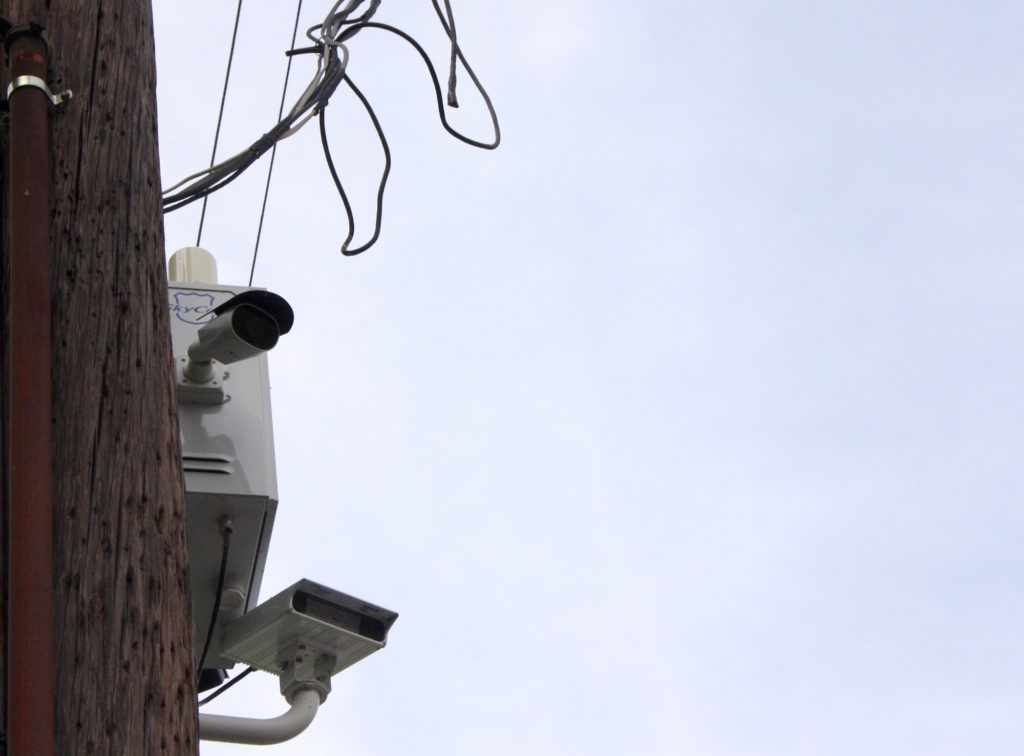
Many U.S. police departments track cars with special cameras known as license plate readers. Now, Nashville police and some members of Metro Council want in on the technology.
But that’s sparked a debate about privacy and police overreach.
License plate readers would take photos of every car that passes by and temporarily store them in a database. Then, police could use that information to track down missing people, stolen cars and violent crime suspects.
Chief John Drake says they would make Nashville safer.
“I’ve long stressed the use of technology to help us improve public safety in the city,” he told council members at a specially called community meeting in December. “I support LPRs. I think that, being a major city, if we don’t have those, then our crime is going to continue to increase and become more rampant.”
Most U.S. law enforcement agencies already have these cameras. Several years ago, the Bureau of Justice Statistics found that nearly 80% of cities around Nashville’s size use the technology.
But some people are worried license plate readers could violate privacy, if they’re not carefully regulated. Or that they could harm vulnerable communities.
“The system is in such a way that, as a Muslim, as an immigrant, as a Black person, I’ve seen where, when it goes wrong, it goes terribly, terribly wrong,” Councilmember Zulfat Suara told her colleagues at the meeting. She’s concerned the surveillance will erode trust between police and residents.
Councilmember Russ Pulley, who spent decades in law enforcement, says those fears aren’t warranted.
“I think it’s important to have this community conversation, to discuss the facts as they are and this technology as it will exist but also understand that we’ve got two fundamentally different viewpoints about how we see public safety,” he says.
Council already moved before to limit surveillance
Nashville law already limits the use of license plate readers to guard constitutional rights. A 2017 ordinance requires Metro Council to approve any requests from government agencies or individuals to use surveillance technology on roadways or other public spaces in the county.
Three different bills would make it easier for police to use license plate readers.
BL2020-581 merely changes the language of city code to allow the use of license plate scanners if they meet specific requirements. The other two proposals lay out potential parameters.
BL2020-494, the bill that originally sparked the current debate about license plate readers, only allows the technology to be used to curb reckless driving and drag racing. It also requires all information collected by the machines to be destroyed after 30 days, unless it’s part of an ongoing investigation.
This proposal is only temporary. It recommends that Metro test out the cameras in a pilot study, then decide whether or not to keep them.
BL2020-582, however, is a bit more broad. If passed, it would allow Metro to own or operate license plate readers for a variety of reasons, including law enforcement investigations and parking violations, as long as strict privacy protections are in place. The proposal also includes measures meant to prevent disproportionate impacts on minority communities, including a yearly public report that would include the race and ethnicity of every traffic stop conducted based on data collected by a license plate reader.
The bills are moving through council on varied schedules. In the meantime, residents have been invited to provide feedback, including at Jan. 7 and Jan. 12 meetings of the council’s public safety committee.
Samantha Max, WPLN News and Report for America.

